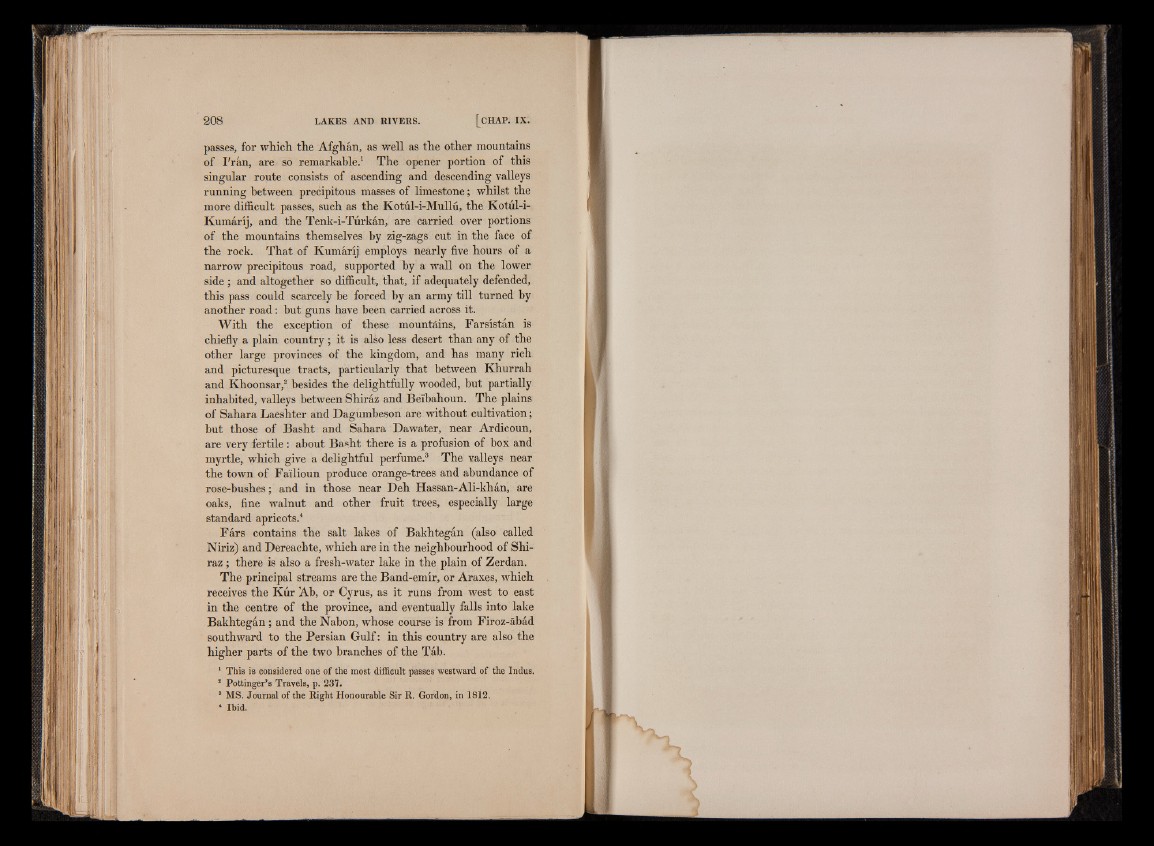
LAKES AND RIVERS.
passes, for which the Afghan, as well as the other mountains
of I'ran, are so remarkable.1 The opener portion of this
singular route consists of ascending and descending valleys
running between precipitous masses of limestone; whilst the
more difficult passes, such as the Kotul-i-Mullu, the Kotul-i-
Kumarij, and the Tenk-i-Turkan, are carried over portions
of the mountains themselves by zig-zags cut in the face of
the rock. That of Kumarij employs nearly five hours of a
narrow precipitous road, supported by a wall on the lower
side ; and altogether so difficult, that, if adequately defended,
this pass could scarcely be forced by an army till turned by
another road: but guns have been carried across it.
With the exception of these mountains, Farsistan is
chiefly a plain country; it is also less desert than any of the
other large provinces of the kingdom, and has many rich
and picturesque tracts, particularly that between Khurrah
and Khoonsar,2 besides the delightfully wooded, but partially
inhabited, valleys between Shiraz and Bei'bahoun. The plains
of Sahara Laeshter and Dagumbeson are without cultivation;
but those of Basht and Sahara Dawater, near Ardicoun,
are very fertile : about Basht there is a profusion of box and
myrtle, which give a delightful perfume.3 The valleys near
the town of Fa'ilioun produce orange-trees and abundance of
rose-bushes; and in those near Deh Hassan-Ali-khan, are
oaks, fine walnut and other fruit trees, especially large
standard apricots.4
Fars contains the salt lakes of Bakhtegan (also called
Niriz) and Dereachte, which are in the neighbourhood of Shiraz
; there is also a fresh-water lake in the plain of Zerdan.
The principal streams are the Band-emir, or Araxes, which
receives the Kur Ab, or Cyrus, as it runs from west to east
in the centre of the province, and eventually falls into lake
Bakhtegan; and the Nabon, whose course is from Firoz-abad
southward to the Persian Gulf: in this country are also the
higher parts of the two branches of the Tab.
1 This is considered one of the most difficult passes westward of the Indus.
8 Pottinger’s Travels, p. 231.
8 MS. Journal of the Right Honourable Sir R. Gordon, in 1812.
‘ Ibid.